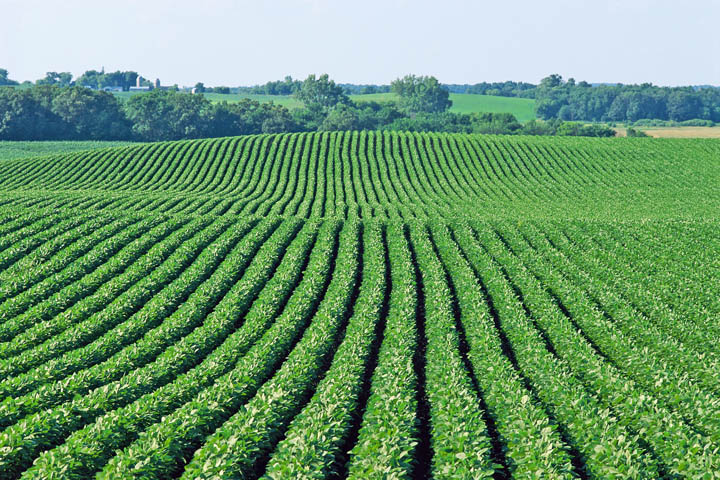
Many Americans have relegated agriculture to their subconscious. Busy and rushed, they plow through their lives and careers oblivious, discombobulated and disconnected from the soil beneath their feet.Agriculture is an economic giant providing food, feed, fuel and fiber for so many despite the extremes of weather, politics and volatile markets.

Agriculture is everywhere we look — horses romping in a pasture along a rural road; our healthy, hardwood forests; all those gleaming, winter-flooded fields giving sustenance to wildlife; and wide, breathtaking fields of corn, cotton, soybeans, rice and wheat lining our highways.
That’s not to mention the clothes on our backs; the sparkling shelves of fresh food items in the grocery store; or even an all-American Saturday barbeque.
Yet many Americans have relegated agriculture to their subconscious. Busy and rushed, they plow through their lives and careers oblivious, discombobulated and disconnected from the soil beneath their feet.
If they had attended a Tennessee Farm Bureau Federation dinner and reception held recently at Ducks Unlimited on the grounds of Agricenter International in Memphis, they might have, if only for a moment, perceived the Tennessee countryside as those in agriculture see it — as an economic giant providing food, feed, fuel and fiber for so many despite the extremes of weather, politics and volatile markets.
Larry Rice, a row crop producer in Tipton County, Tenn., told attendees of the ups and downs a farmer can face, often in the same season. “In May we had a 100-year flood. This summer, we had a 100-year drought.”
Extremes affect the business side of agriculture as well, Rice noted. “Today is a time to celebrate agriculture. Cotton prices are over a dollar a pound. We have $7 wheat, $5.75 corn, and $12 soybeans. We have an ethanol plant in Dyersburg, Tenn., that is increasing the price of corn. But our costs are going up. We in agriculture have to buy our supplies retail and sell our products wholesale.”
Farmers are also struggling with an enigma created by resistant weeds, according to Rice. “We’re covered up with them. We’re having to go back to conventional ways of controlling weeds, but we’re still paying technology fees (for herbicide-tolerant crops). There are some new conventional cotton varieties out there that we need to look at. They’re not for everyone, but for agriculture to advance, we have to have new technology.”
John Charles Wilson, president of Agricenter International and a former cotton producer from Arlington, Tenn., said, “Farmers hold a special place in my heart. Every day, our population is getting farther and farther away from the farm. And it’s up to us to keep the message in front of the public.”
Lacy Upchurch, president of the Tennessee Farm Bureau, said west Tennessee “is the breadbasket of Tennessee. Agriculture is so strong here. Sometimes, we feel overwhelmed with all the regulations and stress. Our problem with agriculture today is that non-farm people don’t know where their food comes from. It’s up to us to get the word out. We’re going to win this thing. We have a lot to look forward to. Adversity breeds unity and strength.”
Those involved in the horse industry in Tennessee are struggling through the economic downturn, according to Peggy Hart with the Shelby Farms Equestrian Alliance. “The number of horse shows are down,” said Hart, who teaches equestrian skills. “And the shows that are down are at events involving the younger riders. We’re losing beginning riders at this stage. This means in 10 years, fewer people will be buying and riding horses, buying hay and other supplies.”
There are over 9.2 million horses in the United States. Tennessee is the sixth largest state for horses. There are over 21,000 horse farms in Tennessee.
Mark Barford, executive director of the National Hardwood Lumber Association, based in Memphis, says the hardwood processing and trading industry is suffering “not in the number of trees, but in the number of people involved in the industry and in sales. But we feel the demand for hardwood is building, and when the market comes back, we’ll come back and start buying again.”
Tennessee has over 79,000 farms, averaging 138 acres in size. Grown in the state are 833,000 acres of corn, 976,000 acres of soybeans, 504,000 acres of cotton, 1.98 million acres of cattle, 205,000 acres of hogs and 142,000 acres of horses. Annual farm receipts from Tennessee are $3.3 billion.
About the Author(s)
You May Also Like





